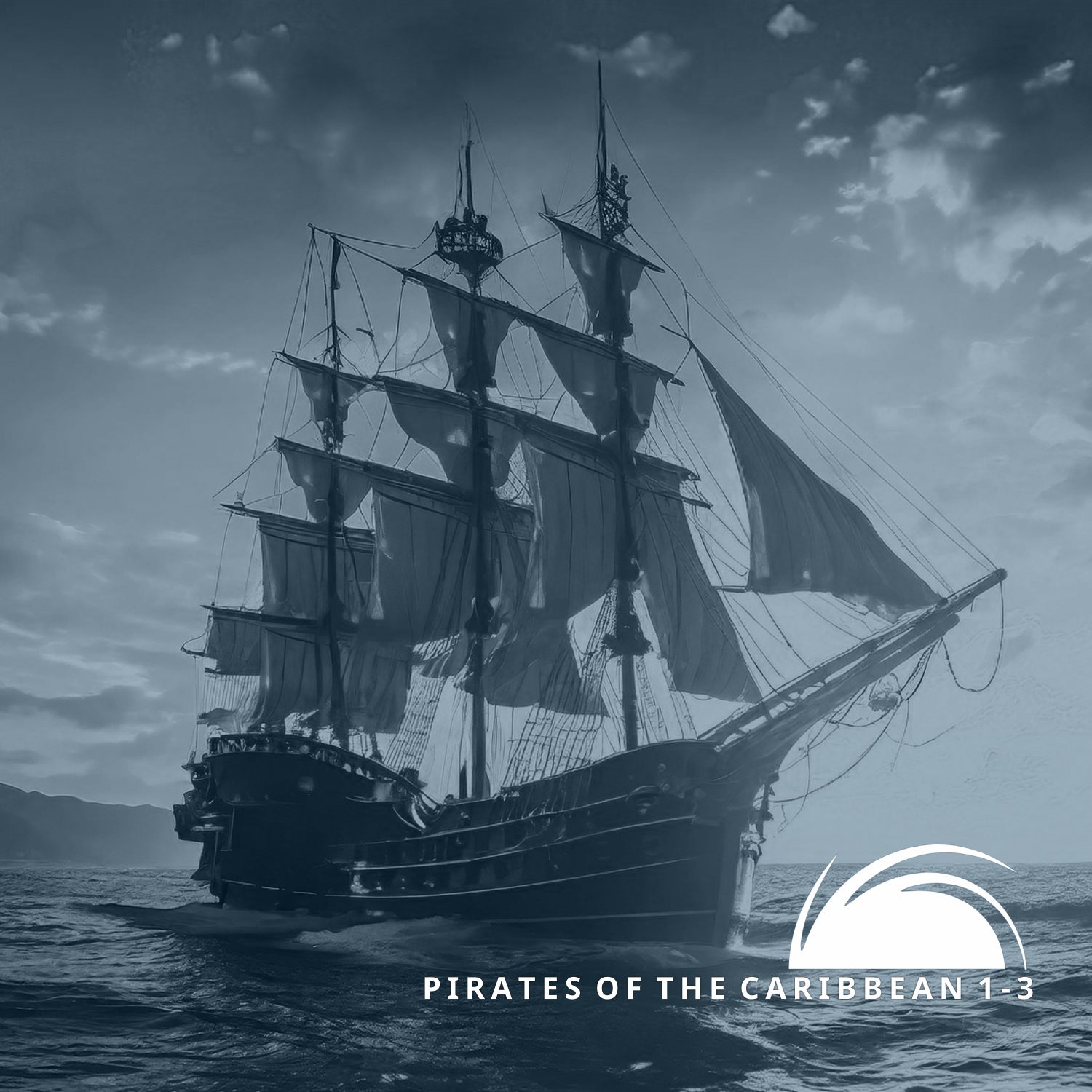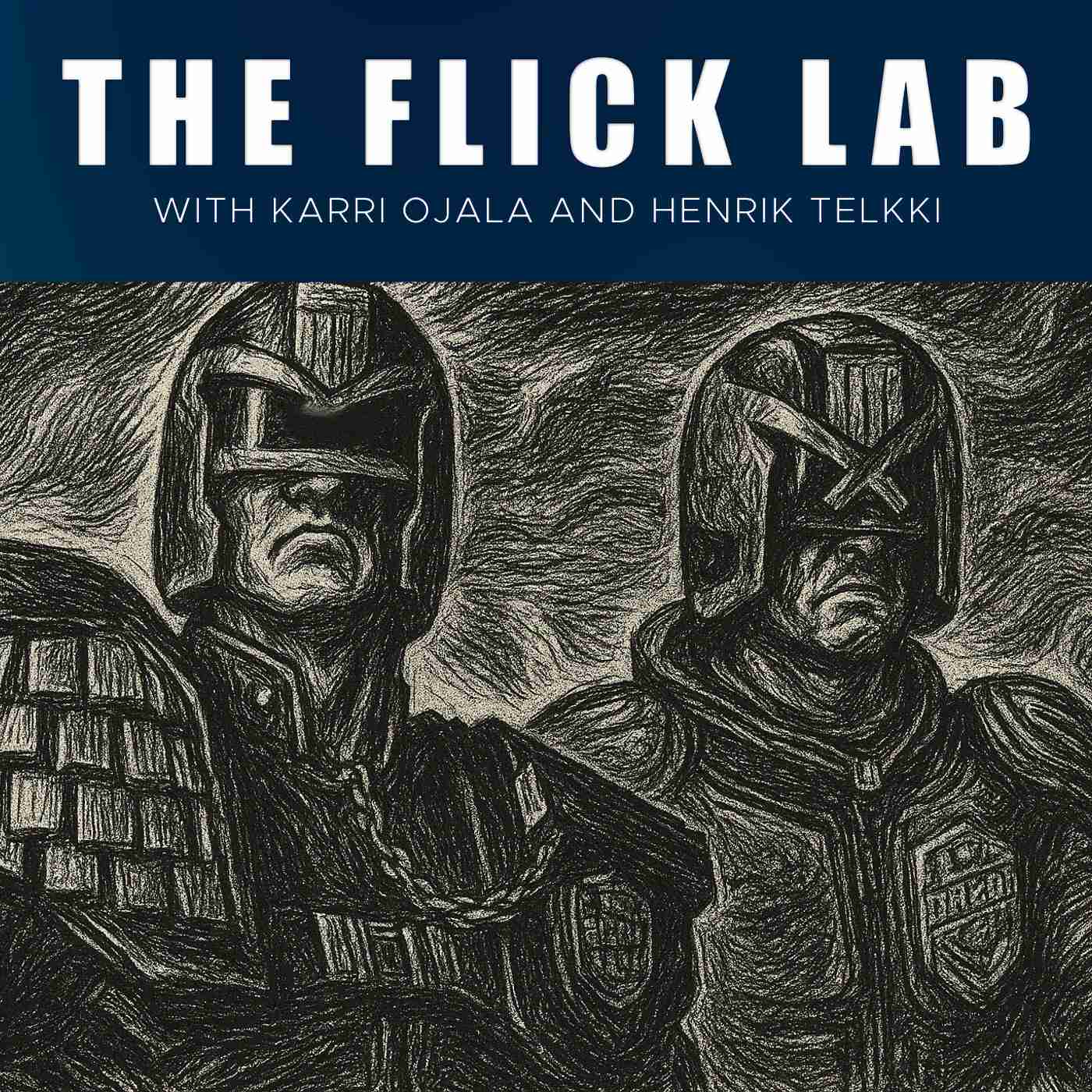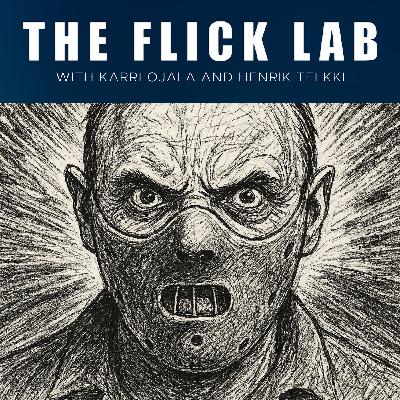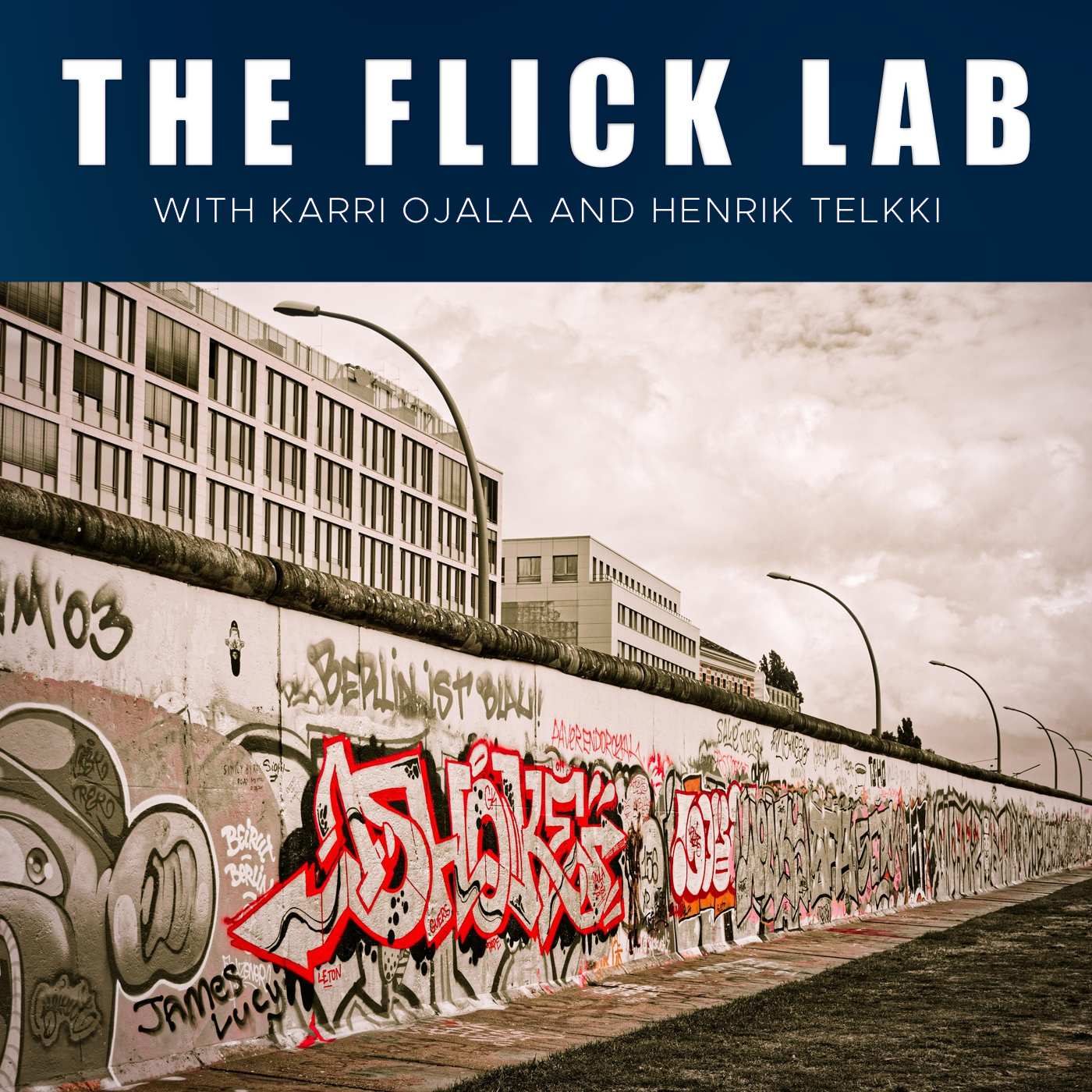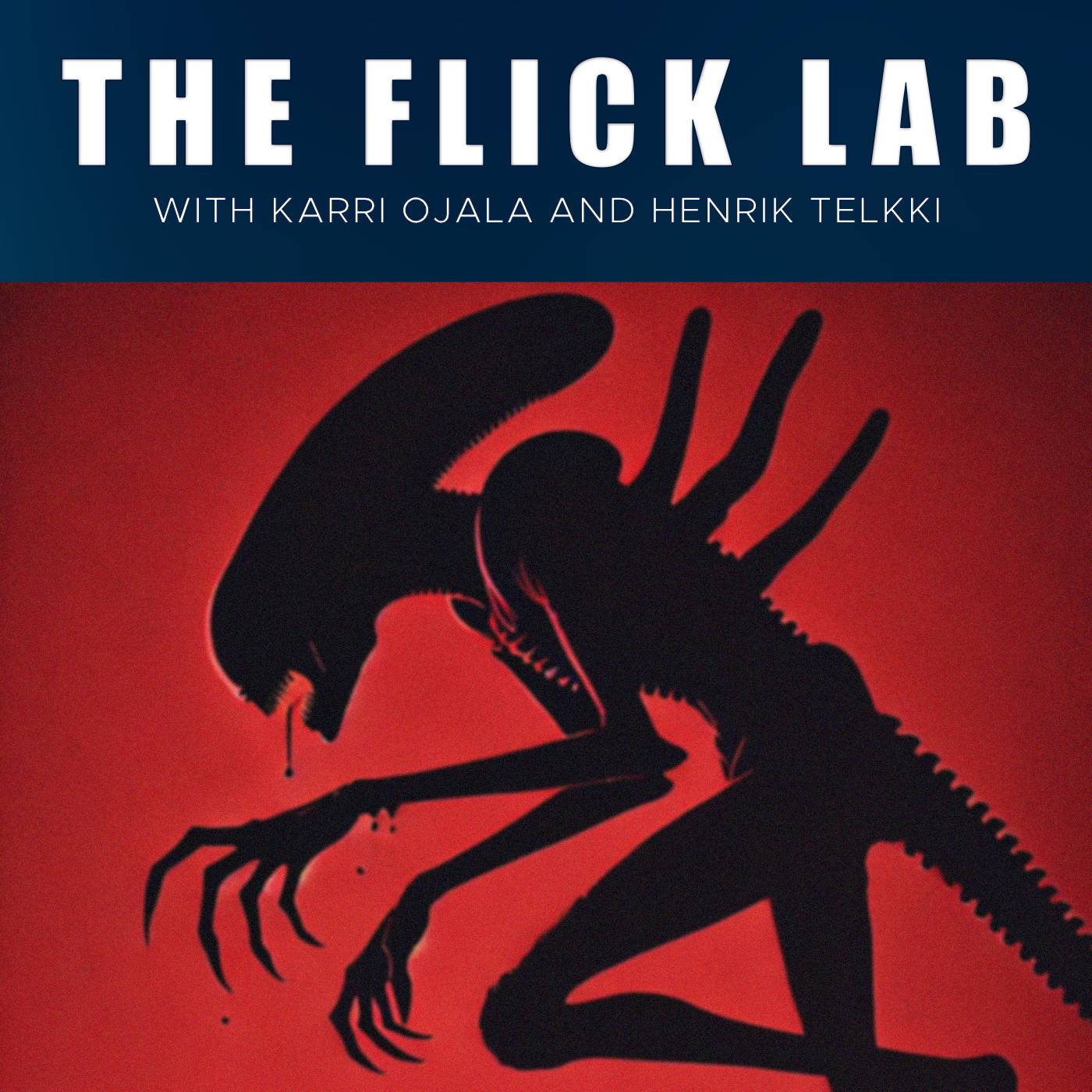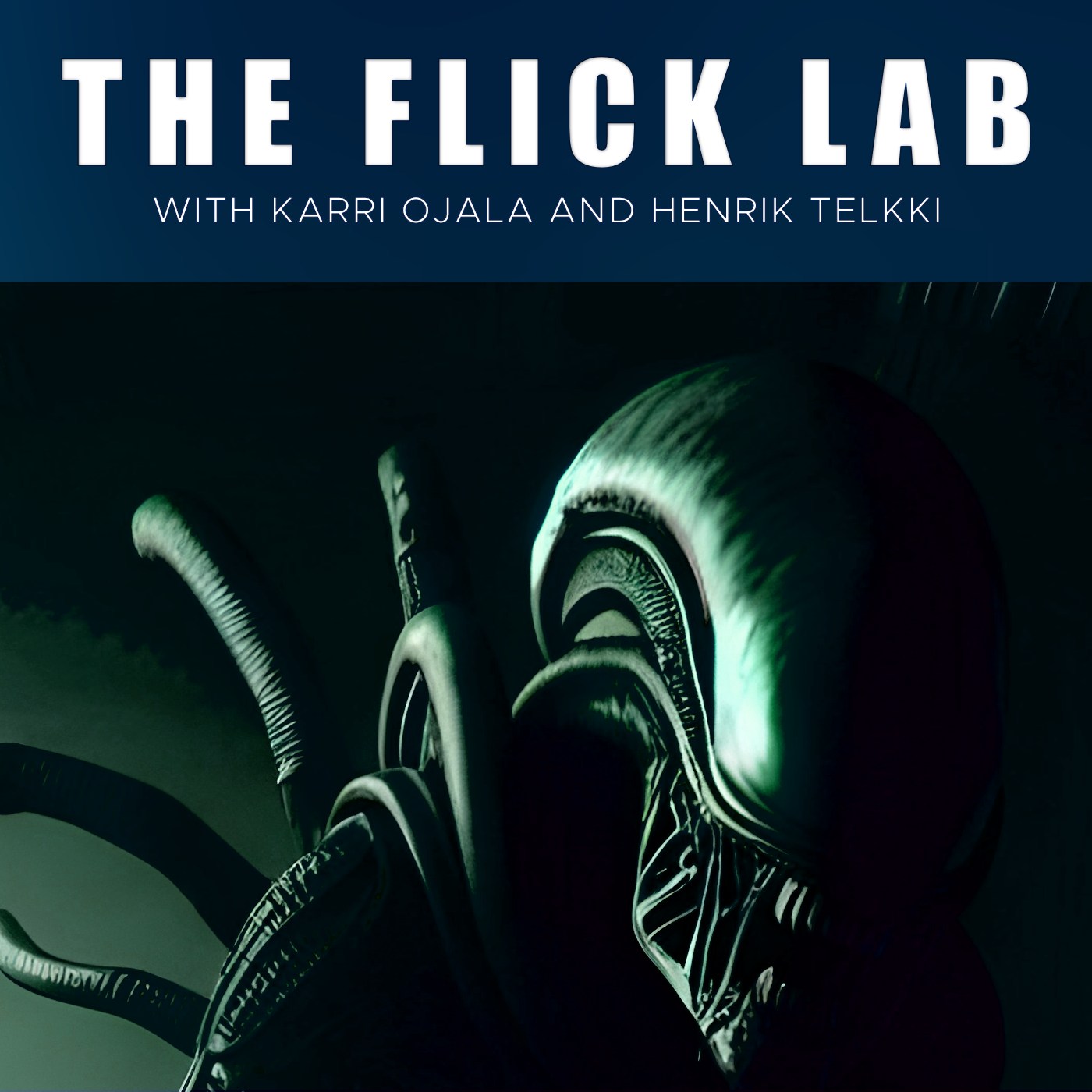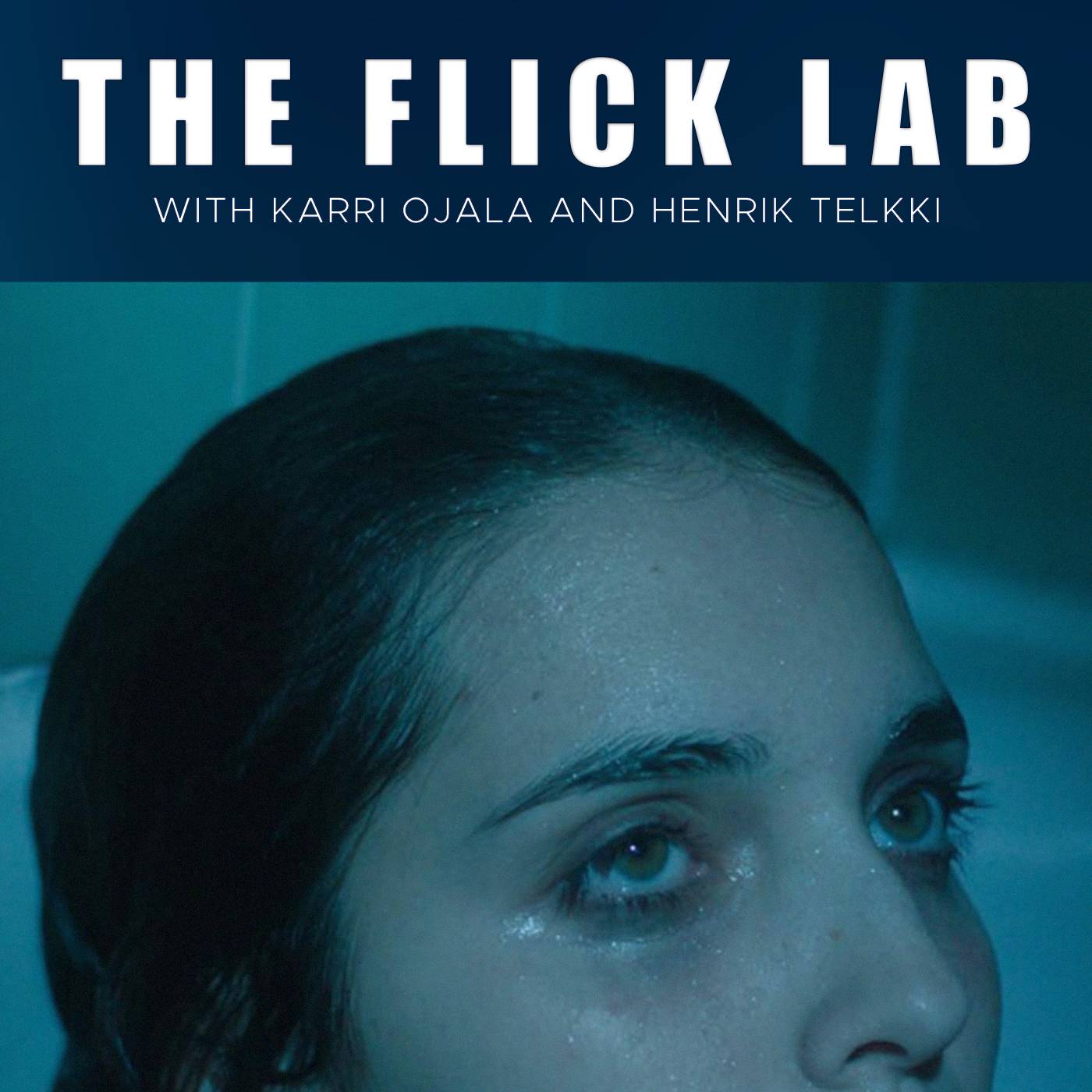Discover The Flick Lab
The Flick Lab

The Flick Lab
Author: Karri Ojala, Henrik Telkki
Subscribed: 10Played: 275Subscribe
Share
© Karri Ojala, Henrik Telkki 2018-2025
Description
Discover the treasures of international cinema through the analytical lens of two media industry professionals from Finland, Karri Ojala and Henrik Telkki.
With a straight-forward, playful yet analytical spirit, the hosts navigate the world of film with varied guests from around the globe, whether industry professionals or fascinating people from the film's target country. Gain unique insights, knowledge and surprising looking glasses from the world of film.
New episodes biweekly.
With a straight-forward, playful yet analytical spirit, the hosts navigate the world of film with varied guests from around the globe, whether industry professionals or fascinating people from the film's target country. Gain unique insights, knowledge and surprising looking glasses from the world of film.
New episodes biweekly.
199 Episodes
Reverse
In this episode, we dive deep into the first three Pirates of the Caribbean films directed by Gore Verbinski - The Curse of the Black Pearl, Dead Man's Chest and At World's End. Why did a movie based on a theme park ride redefine the blockbuster? Is Jack Sparrow such an iconic character as is generally accepted? Karri and Henrik hold many split views - who could've seen that coming. Films covered in this episode: Pirates of the Caribbean: The Curse of the Black Pearl (2003) Pirates of the Caribbean: Dead Man's Chest (2006) Pirates of the Caribbean: At World's End (2007) Hosted by Karri Ojala and Henrik Telkki. Edited by Karri Ojala. The Flick Lab theme tune performed by Nick Grivell.
From 1995's Stallone spectacle to 2012's Karl Urban reboot, Judge Dredd straddles a bizarre line between political satire and fascist power fantasy. In this episode of The Flick Lab, Karri and Henrik break down the paradox; is Dredd a warning against authoritarianism, or a celebration of it? Even more importantly, what may be the behavioral consequences to our societies? We'll discuss the character's comic book origins, compare the two movies, and explore how a supposed critique of fascism can still end up fueling the very fantasy it condemns. Films covered in this episode: Judge Dredd (1995) Dredd (2012) Hosted by Karri Ojala and Henrik Telkki. Edited by Karri Ojala. The Flick Lab theme tune performed by Nick Grivell.
The Silence of the Lambs catapulted Anthony Hopkins to global stardom. Thomas Harris' novels have lead the series forward, even by forcing the writer's hand to continue the story. What has made the films resonate? Has the series been standing largely on his shoulders, or is there more to it? Why do audiences and even the author increasingly sympathize with a serial killer character? Films covered in this episode: Manhunter (1986) The Silence of the Lambs (1991) Hannibal (2001) Red Dragon (2002) Hannibal Rising (2006) Hosted by Karri Ojala and Henrik Telkki. Edited by Karri Ojala. The Flick Lab theme tune performed by Nick Grivell.
At its surface, Possession (1981) can be described as an exploration of identity dissolution, grief, and transformation. However, this characterization scarcely captures the film's psychological intensity, depth and impact. It stands as one of the most disturbing films we've analyzed on The Flick Lab. Films covered in this episode:Possession (1981) Film recommended by Nick Vaky from Mint Volcano.
Joel Haver is a Canadian indie filmmaker and YouTuber known for his experimental film projects. In an ambitious move last year, he set out to create 12 films in 12 months. What might have motivated such a demanding challenge? And how could this rapid production schedule influence the perceived quality of the films? With modern technology drastically lowering the barrier to entry for aspiring filmmakers, how much do tools versus talent truly impact the final product? The Flick Lab decided to explore this question by watching two of Haver's films. Note: This episode was recorded in November 2024, prior to Haver having released all of his films on his Youtube channel, which explains our skepticism of him being able to complete the challenge on time. Mr. Haver got the last laugh here. Films covered in this episode: The Text (2024) Anyone Else But Me (2024) Hosted by Karri Ojala and Henrik Telkki. Edited by Karri Ojala. The Flick Lab theme tune performed by Nick Grivell.
Is Alien Romulus the greatest Alien movie since James Cameron's Aliens, or an overhyped letdown? Let's find out. Films covered in this episode: Alien: Romulus (2024) Hosted by Karri Ojala and Henrik Telkki. Edited by Karri Ojala. The Flick Lab theme tune performed by Nick Grivell.
Following Ridley Scott's Alien-prequel-spinoff Prometheus came Alien Covenant. It was expected to deliver both on audience expectations (Aliens appearing in an Alien franchise) and to provide some answers to the questions presented by Prometheus. In a way, neither would be delivered on. What's the legacy of Alien Covenant, now that the further sequels to Ridley Scott's storyline have been effectively cancelled? Films covered in this episode: Alien: Covenant (2017) Hosted by Karri Ojala and Henrik Telkki. Edited by Karri Ojala. The Flick Lab theme tune performed by Nick Grivell.
Prometheus is the return of director Ridley Scott to the Alien franchise. This is in fact a standalone story based on the same Alien universe, but not an Alien movie per se. It provides ample story elements, but are most of them driven to any conclusion? Do the writers and the director even know the meaning of their own plot threads? Karri and Henrik also discuss the film's atmosphere, the character's decision-making, Ridley's 'space jesus' concept, and other topics. Films covered in this episode: Prometheus (2012)
"Alien: Resurrection" is often considered the black sheep of the franchise, and the passing decades have not been kind to it, at least among some fans. What could be behind the venomous hate towards "Alien: Resurrection"? Is this the lowest point in the franchise, or is that still yet to come? Is "Alien: Resurrection" successful at its self-parody? Hear how Henrik makes his case for "Alien: Resurrection" and Karri argues against it. Films covered in this episode: Alien: Resurrection (1997)
Alien 3 was a nightmare production for the first-time feature director David Fincher. As the young master was trying to put together the best film he could under the circumstances, the studio and even scriptwriters kept interfering with his attempts at applying his vision to a material that he had only few weeks to mull over before shooting had to begin. This combined with onset antics and disagreements between actors. What came out keeps splitting the fan base to this day. Is Alien 3 actually a much better film than its reputation? Films covered in this episode: Alien 3 (1992) Hosted by Karri Ojala and Henrik Telkki. Edited by Karri Ojala. The Flick Lab theme tune performed by Nick Grivell.
The Flick Lab rarely indulges in hyperbolic adulation or labels films as masterpieces. However, we do consider James Cameron's Aliens (1986) to be a masterpiece. This landmark film in the sci-fi genre transformed the Alien franchise into a global phenomenon. In this episode, we delve into the film's themes, the shift from slow burn to action, the bug hunt aspect, character dynamics, Alien genetics and reproduction, plausibility of Burke's schemes, the differences between the Theatrical and Special Edition, Vietnam War allegories, the tech of Aliens, and more. Films covered in this episode: Aliens (1986) Hosted by Karri Ojala and Henrik Telkki. Edited by Karri Ojala. The Flick Lab theme tune performed by Nick Grivell.
Karri and Henrik delve into their personal experiences from their artistic roots and TV/media industry. Among the discussion points are Karri's loss of interest in the industry, the industry's brutality, the tools they've utilized in media, advancements in editing on Linux, the debate over high-framerate in the film industry, challenges with high-resolution remasters of old films, AI enhancement, and other topics. Hosted by Karri Ojala and Henrik Telkki. Edited by Karri Ojala. The Flick Lab theme tune performed by Nick Grivell.
In this podcast episode, Karri and Henrik discuss the movies and TV series they've watched over the past year or so, ones that haven't received dedicated coverage in previous episodes. This segment marks the second part of a two-part series. Films covered in this episode: For All Mankind (TV Series, 2019-) https://www.imdb.com/title/tt7772588 Moonfall (2022) https://www.imdb.com/title/tt5834426 Home Alone (1990) https://www.imdb.com/title/tt0099785 The Pope's Exorcist (2023) https://www.imdb.com/title/tt13375076 Nope (2022) https://www.imdb.com/title/tt10954984 Kung Fury (2015) https://www.imdb.com/title/tt3472226 Umma (2022) https://www.imdb.com/title/tt13235822 Crash Landing on You (TV Series, 2019-2020) https://www.imdb.com/title/tt10850932 Crimes of the Future (2022) https://www.imdb.com/title/tt14549466 The Mole: Undercover in North Korea (Documentary, 2020) https://www.imdb.com/title/tt13243898 Significant Other (2022) https://www.imdb.com/title/tt15353964 Deadstream (2022) https://www.imdb.com/title/tt12788488 The Cabinet of Dr. Caligari (1920) https://www.imdb.com/title/tt0010323 Stupid Young Heart (Hölmö nuori sydän, 2018) https://www.imdb.com/title/tt6592296 Apollo 11 (2019) https://www.imdb.com/title/tt8760684 Sauna (2008) https://www.imdb.com/title/tt1124394
In this podcast episode, Karri and Henrik discuss the movies and TV series they've watched over the past year or so, ones that haven't received dedicated coverage in previous episodes. This episode marks the first part of a two-part series. Films covered in this episode: Reacher (TV Series, 2022-) https://www.imdb.com/title/tt9288030 White Fang (1991) https://www.imdb.com/title/tt0103247 Bullet Train (2022) https://www.imdb.com/title/tt12593682 Sanshiro Sugata, Part Two (1945) https://www.imdb.com/title/tt0038268 The Nun II (2023) https://www.imdb.com/title/tt10160976 The 400 Blows (1959) https://www.imdb.com/title/tt0053198 They/Them (2022) https://www.imdb.com/title/tt14502344 Dogs Don't Wear Pants (2019) https://www.imdb.com/title/tt9074574 City on a Hill (TV Series, 2019-2022) https://www.imdb.com/title/tt7187044 Beyond Utopia (Documentary, 2023) https://www.imdb.com/title/tt25470468 Invoked (Documentary, 2022) https://www.imdb.com/title/tt22873412 Iron Butterflies (Documentary, 2023) https://www.imdb.com/title/tt12427090 Theatre of Violence (Documentary, 2023) https://www.imdb.com/title/tt27009862
The Flick Lab podcast recently had the pleasure of watching 'Healing Plan', a short film by two recent NYU graduates. Actress Matilde Silva and Director Samantha Joia joined us to discuss their new film. Luna, a Portuguese teen struggling with insomnia and her recent move to America, is sent to a celebrity doctor to help cope with her adjustment. His revolutionary sleep therapy brings her back to the beginning of her move and several of the struggles she has faced since. But his "healing plan" has some devastating drawbacks she is not quite ready to face. The film infuses dream-like states, dramatic lighting sequences and revolves around the important topic of the potential drawbacks of cultural assimilation and the effects of social media. Among the podcast discussion points are also the risky nature of film industry, the importance of passion and atmosphere at the set, pastel de nata, and other topics. Films covered in this episode: Healing Plan Healing Plan film website: https://healingplanfilm.com/ Matilde Silva: https://www.imdb.com/name/nm14451415 Samantha Joia: https://www.imdb.com/name/nm14160255 Indie Activity interviews: https://www.indieactivity.com/in-conversation-with-matilde-silva-on-her-role-in-healing-plan/ https://www.indieactivity.com/in-conversation-with-samantha-joia-director-for-healing-plan/
In this episode of the podcast, the hosts Karri and Henrik compare the original Howard Hawkes / Christian Nyby 1951 version of The Thing to John Carpenter's 1982 reimagining and finally to the 2011 prequel / remake, directed by Matthijs van Heijningen Jr. There's also a discussion on the original source novella by John W. Campbell from 1938. Each film version is a time capsule, reflecting their respective zeitgeist. Which film adaptation is the best one? Films covered in this episode: The Thing from Another World (1951) The Thing (1982) The Thing (2011) Hosted by Karri Ojala and Henrik Telkki. Edited by Karri Ojala. The Flick Lab theme tune written and performed by Nick Grivell.
In this episode of the podcast, the director of Jävla pappa ('Goddamn Dad'), Niklas Gyberg Ivarsson, joins to discuss his documentary film about his complicated relationship to his alcoholic father. While they're building an RV together, the two are forced to confront their complicated feelings. This directorial debut of Niklas, published by the Swedish public broadcasting company SVT, has gained recognition in Swedish film festivals and public schools. Niklas's portrayal of universal struggles within the film has resonated widely, garnering unexpected levels of exposure. Currently, the film is only available for free streaming on SVT's website, for those in Sweden, with Swedish subtitles, here: https://www.svtplay.se/video/Kv1YorJ/javla-pappa You can find Niklas Gyberg Ivarsson on Instagram: @niklasgybergivarsson Films covered in this episode: Jävla pappa (2023) Hosted by Karri Ojala and Henrik Telkki. Guest Niklas Gyberg Ivarsson. Edited by Karri Ojala. The Flick Lab theme tune written and performed by Nick Grivell.
In this episode of the podcast, filmmaker and podcaster Martin Kessler joins the show to discuss the film The Ear, also known as Ucho. This Czechoslovakian classic, directed by Karel Kachyňa, unravels a Czech couple (Radoslav Brzobohatý, Jirina Bohdalová) consumed by fear and paranoia, vividly depicting the psychological toll of living in a communist surveillance state, "the all-hearing ear". Throughout the night, the couple confronts their deepest fears, and the underlying fractures in their turbulent marriage come to the surface. Completed in 1970, the film was banned in the aftermath of the Prague Spring, receiving its release nearly two decades later following the fall of the communist regime in 1989. You can find Martin Kessler on X (Twitter): @MovieKessler Films covered in this episode: The Ear (1970) Hosted by Karri Ojala and Henrik Telkki. Guest Martin Kessler. Edited by Karri Ojala. The Flick Lab theme tune written and performed by Nick Grivell.
In this episode of the podcast, musician Pat Smith joins Karri and Henrik to delve into the critically acclaimed film Whiplash. Is it a story about transcending mediocrity to achieve brilliance in your chosen art, in this case, drumming? Alternatively, is Whiplash a gripping tale of a descent into madness, fueled by a mentorship gone awry? Perhaps it is neither, and instead, a narrative that simply observes ambiguity. Does Whiplash communicate an empowering message or potentially something harmful? You can find Pat Smith's music on Spotify, Apple Music, other platforms and here: https://ditto.fm/wander-by-starlight https://ditto.fm/3-kings https://ditto.fm/no-respect https://ditto.fm/the-ragged-remains https://ditto.fm/zombie-apocalypse https://ditto.fm/the-lies-were-told https://ditto.fm/trail-rations-ep Films covered in this episode: Whiplash (2014) Hosted by Karri Ojala and Henrik Telkki. Edited by Karri Ojala. The Flick Lab theme tune written and performed by Nick Grivell.
Filipino cinema is in a state of emergency. It is grappling with an artistic gridlock that confines new films to a limited spectrum between rom-coms and slapstick. Amidst this cinematic stagnation, the cinema-goers gravitate towards Hollywood blockbusters, meanwhile relegating the rich Filipino cinematic heritage to neglect. However, a resurgence is underway as initiatives emerge to salvage and revive the remnants of this cinematic legacy. The Flick Lab takes on the responsibility of honoring Filipino cinema by shedding light on its critically acclaimed gems. In this episode of the podcast, Karri and Henrik deep-dive into Manila in the Claws of Light, hailed as one of the Philippines' cinematic masterpieces. Despite severe degradation of the film's negatives, recent restoration efforts have breathed new life into this Lino Brocka creation. In a tapestry of realism, melodrama and noir, the audience is taken on a journey with a young fisherman who moves to Manila to locate his girlfriend, of whom he has not heard since she ventured into the bustling capital. The film deals with themes of hope, perseverance, desperation, love, and hate, echoing a howl and cry for something better. Based on and filmed in the 1970's, the film illustrates the daily struggles during these times; monetary hardship, class struggle and rampant corruption. Films covered in this episode: Manila in the Claws of Light (1975) Hosted by Karri Ojala and Henrik Telkki. Edited by Karri Ojala. The Flick Lab theme tune written and performed by Nick Grivell.


